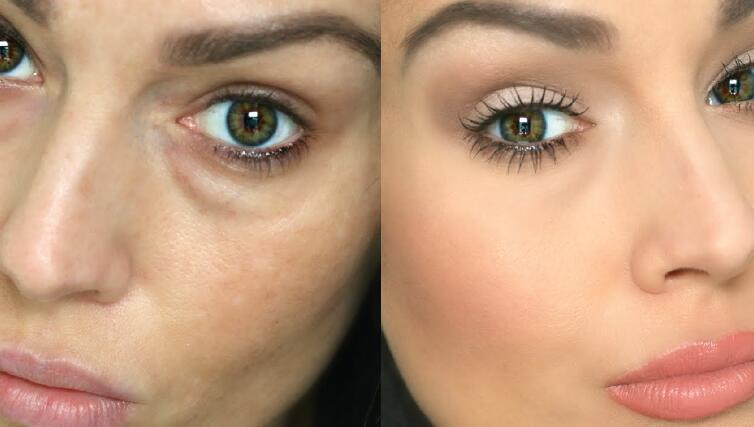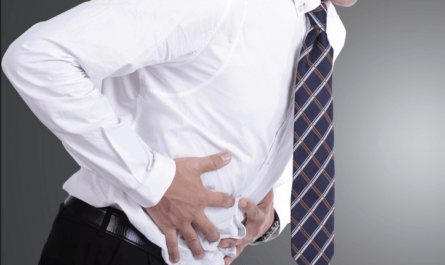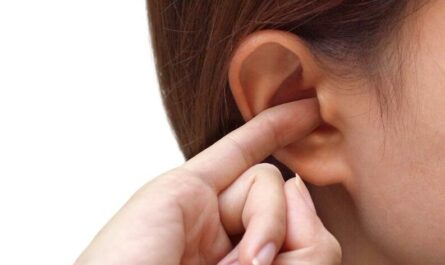Dark circles and puffy under-eye bags occur as a result of many factors. One of the most common reasons is tiredness and fatigue. Some other factors are genetics, facial features, skin type, aging, and stress. This article discusses nine common causes of puffy under-eye bags with treatment.
Besides being aesthetically pleasing, a well-rested body functions much better than a caffeine-fuelled overworked body. Most experts would recommend that adults get 8 hours of sleep daily. The ideal hours of downtime vary from individual to individual, and it is up to you to know how your body works and how much rest you need.

What Causes Puffy Under Eye Bags?
Swelling around the eye area is caused by several situations, but the physical reaction is started by excessive accumulation of fluids in the sensitive skin surrounding the eye. The skin around the eye is one of the thinnest and most sensitive tissues in the body, and swelling and discoloration can quickly occur there.
Some of the health conditions and lifestyles that can lead to puffy eyes include:
- Lack of sleep
- Stress
- Fatigue
- Smoking
- Sinus problems
- Dehydration
- Medical problems
- Aging
- Crying
- Excess salt intake
1. Puffy Eyes in the Morning
You must have already noticed how your eyes appear puffy in the morning, even after a good night’s sleep. This is due to natural causes and should not cause worry. After some minutes and a splash of water to the face, this puffiness will reduce and eventually go away.
2. Puffy Eyes Due to Allergies
Allergies can lead to a build-up of fluids in and around the eyes. Allergies can manifest in people in different ways, and one of the more common symptoms includes sneezing and watering or swollen eyes. Also, allergies can appear in the form of itchy eyes; constant scratching would lead to swelling in the area.
Eye allergies can be caused by the following:
- Pollution
- Dost
- Pollen
- Mold
- Smoke r
- Dust
- Chemicals
- Animal Fur
- Perfume
Puffy eyes are triggered a lot by allergies, so you must be aware of what you are allergic to and do your best to avoid situations or places that would expose you to these triggers.
For instance, you can avoid owning or being around pets if allergic to them. You can also keep your allergy medication, such as; nasal decongestants, antihistamines, and eye drops, handy to help ease the reactions.
3. Puffy Eyes Due to Crying
Crying puts a lot of strain on the eyes and causes fluid to gather around the eye area, leading to swelling and puffiness within a short while. Although swollen eyes after a bout of intense crying are unavoidable, the swelling can quickly come down in a short time.
4. Puffy Eyes from Excess Salt Intake
Experts and dieticians will advise that you limit your salt intake; for various reasons. You might not be aware that excess salt consumption can lead to puffiness under the eyes.
Excess sodium can lead to water retention, which your body does not need. Excess water retained in the body also means excess water contained in the face, hence the puffy under the eyes. You might notice that your face is extra puffy the morning after a very salty meal, and now you know why.
You can avoid this by reducing your salt intake and avoiding packaged and processed foods and snacks containing excess salts.
Don’t forget to flush your system with enough water after eating. Equally, you can consume some of these healthy foods to balance your salt intake;
- Potatoes
- Bananas
- Yogurts
5. Puffy Eyes Due to Lack of Sleep
You might have already noticed from your days as a student, staying up all night to study for a big test or exam. Most times, lack of a good night’s rest and stress would lead to swollen eyes and dark under-eye circles in the morning.
Lack of a good night’s rest can also cause droopy eyelids and reddening eyes.
Besides the unattractive tired look it gives you, you mustn’t skip out on your recommended hours of sleep at peak mental and physical performance.
Most adults need at least 7 hours sleep every night to function properly.
6. Puffy Eyes Due to Smoking
Smoking is never an advisable lifestyle or habit; among the many adverse effects on your body due to smoking, eye irritation is one of them. Even when you are not smoking and simply around smokers, your eyes could tear up and get puffy due to the smoke. This, in turn, will lead to under-eye puffiness.
Avoid smoking if you are in the habit of lighting up some cigarettes or marijuana. Avoid environments where you will be exposed to smoke—clubs, lounges, and bars.
7. Puffy Eyes Due to Eye Infections
Another common cause of under-eye puffiness is eye infections. Some eye infections irritate your eye and cause swelling in one or both eyes. Most times, the swelling will begin in one eye but quickly spread to the other.
Avoid rubbing your eye or touching it when you have an eye infection. You might need to treat the infected eye(s) with an antibiotic or some other cream, but it should go away within the week.
Here are some of the eye infections which can lead to under-eye swelling:
- Pink eye. This is perhaps the most common eye infection, and bacteria or other irritants cause it. Pink eye affects people of all ages and is highly contagious.
- A stye is an infection of a tear gland or the eyelash follicles. When a stye first appears, it is a small bump on the lash line, then later might secrete pus and cause under-eye puffiness.
- Periorbital Cellulitis. This is an inflammation in the area around the eye, which begins at the sinuses. Minor traumas to the eye, such as a scratch or blow, could also lead to this condition. Sometimes, it requires professional help.
8. Puffy Eyes Due to Trauma or Injury
The eye and its surrounding area are extremely sensitive. An injury to the eye, whether just a tiny scratch or a severe blow, could permanently damage your sight. These injuries can happen from the slightest things, including a scratch from your fingernail or makeup brush.
More severe trauma, like a blow to the eye, can cause swelling and puffiness.
9. Puffy Eyes Due to a Blocked Tear Duct
The eyes have tear ducts that allow water and tears to drain out of the eyes. When the ducts get blocked, fluids gather in the skin, leading to swelling and puffiness. Tear duct blockage may happen for various reasons, including an eye injury, infection, and foreign objects getting into the eyes.
This condition usually fixes itself within a few days, but you can assist by cleaning your eyes with clean water and applying a warm compress. Watch out for the following symptoms to know if you have a blocked tear duct:
- Swelling
- Crusting
- Watery tears and excess tearing up
- Redness
- Inflammation of the eyes
- Blurred vision
- Pus
- Pain
How to Get Rid of Puffy Under Eye Bags
Under-eye swelling does not usually require a visit to the doctor and will go away on its own after a few days. However, depending on the cause of your eye swelling, you might need treatment. After examination, your doctor may hook you up with one of the following treatments:
- Antibiotics
- Anti-allergy medication
- Antibacterial eye drops
- Eye drops
- Antibacterial ointments
Other than visiting your doctor, you can treat your eye swelling at home with simple home remedies.
1. Teabags
Many might not know this, but a cool tea bag applied to the eye works wonders in soothing inflammation and bringing down swelling.
To do this simple home hack, steep your teabags in water as usual, and place the teabags in the fridge for at least 20 minutes. You can also dip them in cold water to allow them cool. Next, place the cold tea bags over your eyes for about 15 minutes.
2. Cold compress
Apply a cold compress to your eyes to reduce swelling and under-eye puffiness. You can also place a spoon in the fridge for some minutes and apply the back of the spoon to your eyes to relieve the swelling. Other things you can use as a cool compress include; chilled cucumber slices and frozen vegetable bags.
You can purchase a cold metal facial roller or use your fingers to massage your face and drain excess fluids away gently.
3. Get proper rest
While staying up and skipping your 8 hours of sleep on some nights is necessary, you should not deprive your body of its beauty sleep. Always take some time to rest, and your body will thank you.
4. Stay properly hydrated
Drinking enough water is essential to prevent dehydration. Dehydration can lead to a host of other health ailments. You must keep your body adequately hydrated by drinking enough water. How much water is enough? Experts recommend at least nine glasses of water daily for women and 13 cups for men.
5. Retinol cream
Retinol creams have most likely been a part of your skin regime sometime in the past, especially if you have dealt with acne or psoriasis. This cream is also helpful in treating eye bags since it functions mainly as Vitamin A. You should altogether avoid retinol creams and other products if you are pregnant.
When should you Visit a Doctor?
Most eye swellings will reduce or completely disappear after 24 – 48 hours. However, if, for some reason, your swelling lasts longer than this time, it may be time to consult with a doctor.
For eye infections, the eye will typically be back to normal after a few days or with the help of some antibiotic treatments. You should still consult with a doctor to rule out the possibility of a more severe infection.
If your eye shows any of these symptoms, you should seek medical assistance immediately:
- Blurry vision
- Pressure
- Pain
- Swelling
- Redness
- Pus or mucus
- Bulging eye
- Loss of vision
- Fever
- Watery eyes
The eyes are one of the most sensitive organs in the body and must be treated with extreme care. Puffy under-eye bags are a normal time-to-time occurrence that usually resolves itself untreated.
However, with the delicate state of the eyes, you should consult your doctor if you notice any under-eye puffiness that does not go away after some time or keeps recurring. Remember that early detection and treatment are vital to diverting possible larger problems.






